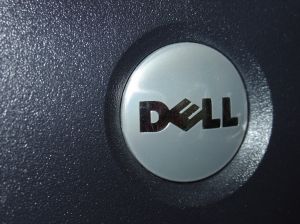"We should whack them [Dell over GNU/Linux dealings], we should make sure they understand our value."
--Paul Flessner, Microsoft

Summary: Microsoft Windows is not selling well, so hardware companies ought to start looking for alternatives
Sales of Windows continue to decline as we noted earlier this week. The "operating revenue down 10%, Windows revenue 4%," quotes a reader of ours
from here, noting "that's worse than the decline in PC market share" (an elusive market due to its general decline). He added that "tablets and smart phones are the main reasons" (many run Linux) and "Windows 7 is a failure" (which is also true as the numbers suggest, contradicting
fake hype). So why aren't more OEMs moving away from Windows just yet? Microsoft has just admitted yet again that Windows sales are declining, but we are still not seeing many OEMs that sell GNU/Linux on desktops and laptops. The
FFII and AFUL try to address this issue while in the mean time, a UK-based journalist complains about Dell:
-
One of the first PCs that I bought was a Dell. It came with 8 Mbyte of memory, 230 Mbyte hard disc, and cost a mere €£1479 (the HP Laserjet IV cost an extra €£1030) - all excluding VAT. Sadly, it was running Windows 3.1, not least because at this time - 1993 - I had yet to discover free software (and GNU/Linux was, in any case, still pretty rudimentary at this point.)
Since then, I've bought more Dell PCs from time to time, but always with an eye on whether the machine would run GNU/Linux well. In particular, I've always checked whether Dell itself was offering such systems. My view was that if it did, I should buy from them in an attempt to (a) reward them for supporting open source and (b) encourage them to offer more machines.
-
I followed Moody's tracks through the Ubuntu-focused link above, and sure enough, he's right that at first glance it's nearly impossible to find anything on Dell's site that would seem to make it easy to order a Linux-based system. Moody's further investigation led him to this more helpful page, but if you follow the "Shop Now" button on that page, you find a woefully incomplete landing page.
These findings are more significant than they may seem at first. It's extremely important for the major PC manufacturers to offer Linux as an option, and make it easy for people interested in Linux to learn about its advantages. If this doesn't seem important, just consider the success that Microsoft had in the late 1980s and early 1990s in getting PC manufacturers to adopt Windows. Its sway with them helped Microsoft put Windows on the vast majority of business desktops, and--at the time--helped squash Apple's personal computing efforts.
There are more reasons to move away from Windows and they include security and the cost to the economy. This was talked about in IRC
yesterday.
Groklaw responded to
this report about
citizens paying for Microsoft's mistakes by writing: "Just a suggestion. If everyone used GNU/Linux, fixing a problem is so much more simple. You can delete everything except your home partition, keeping all your documents and data while reinstalling the system. Or vice versa, if it's the home partition that is affected. You can save all your materials, then wipe out the home partition without having to reinstall everything. Of course, this kind of virus doesn't affect GNU/Linux systems anyway, but I wonder why the government doesn't help people to understand the security advantages they could benefit from. And users would benefit too, because they wouldn't need to let the FBI access their computers to clean it up, a rather disturbing concept."
More OEMs can offer dual-boot systems as standard. The GNU/Linux part (not merely fast-boot Linux) does not cost a thing and Microsoft will get the competition it deserves. It will give the OEMs a sound business model and an advantage over the competition, an added value of sorts.
⬆


Comments
Needs Sunlight
2011-04-29 18:07:35
http://freedomincluded.com/ https://kd85.com/lemote.html
I look forward to being able to get full notebooks or desktops.
twitter
2011-04-29 21:26:45
It is strange that software that is technically superior and has similar customer satisfaction rates at big box stores but costs less would not be offered everywhere. Perhaps crapware kickbacks are another reason Microsoft's bottom line sags so. The US DOJ should investigate those, what Microsoft did to Walmart back in 2006 and Xandros/Asus two years ago. Techrights presented leaked OEM and vendor agreements showing why companies like Dell hide and cripple gnu/linux. Microsoft is burning so much money bribing their "partners" that investigation should be trivial.